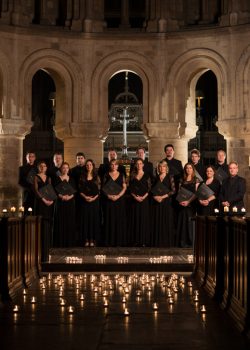 I CANNOT think of a more perfect setting to stage a festival dedicated to the music of Johann Sebastian Bach and his contemporaries than the City of Bath. Once again, artistic director Amelia Freedman Came up with a splendid variety of five concerts over a three day period, as she does every year with the twin Mozart Fest festival.
I CANNOT think of a more perfect setting to stage a festival dedicated to the music of Johann Sebastian Bach and his contemporaries than the City of Bath. Once again, artistic director Amelia Freedman Came up with a splendid variety of five concerts over a three day period, as she does every year with the twin Mozart Fest festival.
Almost as miraculous as the high quality of music on offer is the fact that throughout the 13 years since it started, the Bach festival has survived, without any public funding, thanks to the top class programmes assembled by Amelia Freedman, by its patrons and supporters, by the dedicated work of Sir David Bell and his fellow directors and by the many volunteers who organise and take care patrons at every event.
Although rebuilt at the start of the 19th century, with its medieval style of architecture St Mary’s Church Bathwick, was an ideal setting for two of the concerts, by vocal ensemble Tenebrae, under their conductor and founder, former Kings Singer Nigel Short, and The Academy of Ancient Music. Tenebrae (pictured) started the festival off with Gesualdo’s Responsories for Holy Saturday. The composer’s violent temperament (he killed his first wife and her lover when he discovered them making love), rings through the musical lines. In contrast came Bach’s Komm, Jesu, Komm, Jesu Meine Freude and Singet dem Herrn.
Instrumental talents took over from vocal prowess with equal effect when The Academy of Ancient Music replaced the choir in St Mary’s the following evening. Led by their director, violinist Bojan Cicic, they presented a series of concerto’s by Mossi, Locatelli, Vivaldi, Valentini and Corelli.
A very different atmosphere was generated in the more confined spaces of the Guildhall, where the two lunchtime concerts featured a solo harpsichord and guitar duo. Physically, in the intensity in which at times he appeared to be attacking the harpsichord, Mahan Esfahani gave the impression that he might overwhelm Handel’s Suite No 2 and Bach’s English suite No 6. But if you closed your eyes and just listened to his playing, you immediately realised that he was in complete control of the presentation, bringing out every nuance in the music.
You would expect twin brothers to be able to form an ideal musical partnership, and the Hungarian-born guitarists Peter and Zoltan Katona did not disappoint when they took over the Guildhall. As happy playing pop, rock or jazz as they are classical music, they mixed Scarlatti with Handel, Vivaldi and Bach to great effect, as if this was an everyday occurrence.
Bath Abbey, which has its detractors as a concert venue, was the setting for the final performance, but it has a unique atmosphere that makes the playing and singing of Bach concertos and cantatas there a joy, if you have the musicians, singers and programme to take advantage of its plus points. Arcangelo, led by its founder Jonathan Cohn at the harpsichord, soprano Anna Dennis, mezzo-soprano Anita Monserrat, tenor Guy Cutting and bass-baritone Eward Grint, had just the right credentials to do so. And with French violinist Theotime Langlois de Swarte, sporting a loose white shirt a la Nigel Kennedy, on hand to play Bach’s violin concerto in E major with clarity and exuberance, another splendid Bach festival came to a fitting conclusion.
GRP